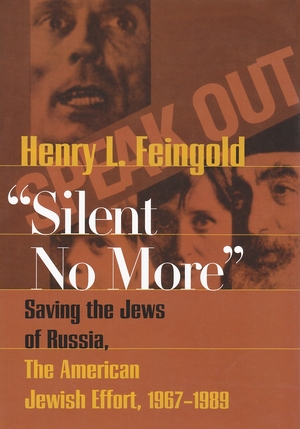"Feingold . . . eschews retroactive moralizing in favor of balanced, contextual evaluation of historical . . . possibilities. His perspectives . . . remain enduring contributions to the field. Highly recommended for all readers."—Choice
"This book is too thoughtful . . . and ethically responsible to affect that mass of American Jews who want to believe that had they been in power during the Holocaust, they would have reacted properly. We need that myth—so Feingold's admirable study will reach fewer hearts than it should"—Sh'ma: A Journal of Jewish Responsibility
Description
One of America’s most prominent historians probes the haunting question of why the efforts of the American government and Jewish leaders were ineffective in halting or mitigating Berlin’s genocidal policy during the Holocaust.
Focusing on the role of the Roosevelt administration and American Jewish leadership, Henry L. Feingold anchors the American reaction to the Holocaust in the tension-ridden domestic environment of the depression to the international scene. In these essays, he argues that the constraints of the American political system in the 1930s and 40s and the extraordinary events of the time virtually made it impossible for the administration and American Jews to react differently.
Table of Contents
Introduction
PART ONE - Holocaust: The Historical Problem
1. The Uniqueness of the Holocaust
2. Like Sheep to the Slaughter: The Judenrat
3. The Resistance Question
4. Allied Foreign Policy and the Holocaust
PART TWO - America and the Holocaust
5. Roosevelt’s New Deal Humanitarianism
6. Could Mass Resettlement Have Saved European Jewry?
7. The American Effort to Save the Jews of Hungary
8. Governmental Response to Human Crisis
9. PBS’s Roosevelt: Deceit and Indifference or Politics and Powerlessness?
PART THREE - American Jewry and the Holocaust
10. Was There Communal Failure Among American Jews?
11. Jewish Leadership During the Roosevelt Years
12. Rescue and the Secular Perception
13. Who Shall Bear Guilt for the Holocaust?
About the Author
Henry L. Feingold is professor of history at Baruch College and the Graduate Center of the City University of New York. He is the author of several books including Lest Memory Cease: Finding Meaning in the American Jewish Past and American Jewish Political Culture and the Liberal Persuasion.
October 1995



